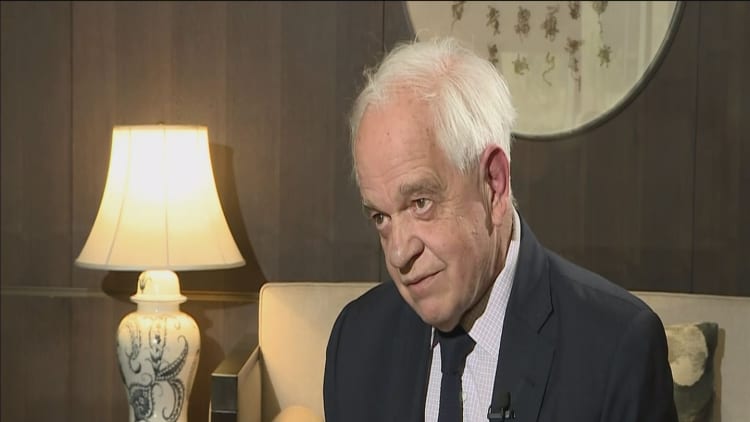
China's President Xi Jinping has to back up his words with actions if he wants to avoid a trade war, Canada's ambassador to China told CNBC.
"Xi Jinping has used very strong language in favor of globalization, in favor of freer trade. But it would be good if he could match those statements with actions," ambassador John McCallum said, referring to Xi's speeches at Davos last year and at the Boao forum this year.
"Their actions have not always matched their words. So the more they could act, the more it would help the world to preserve the international system and avoid a descent into a trade war," he added.
The escalating trade tensions between the two largest economies in the world have resulted in China slapping a 25 percent levy on U.S. imports including products such as soybeans, cars and whiskey — a tit-for-tat after President Donald Trump targeted a list of Chinese imports.
China is the biggest export market for Canadian soybeans and while it might be true that Canada might stand to benefit from tariffs on U.S. soybeans , the ambassador told CNBC's Martin Soong that a trade war in general will still have a negative impact on Canada, and the global economy at large.
"Canada is a trading nation, and if the world trading system is in jeopardy, then Canada is hurt," he explained. "So that is why even though we may have certain gains if this occurs, we still hope that there will not be a trade war and a settlement will be reached."
'Our biggest friend'
The ambassador had recently come under fire for his remarks on Canada's relationship with the U.S. and China, by claiming that Ottawa has more in common with Beijing than its neighbor.
He explained that his comments, reported by the Globe and Mail, have been taken out of context, saying: "In the context of our current discussions over trade and globalization, China's policy in some regards is closer to Canada's policy than Canada is to the U.S."
But McCallum reiterated the importance of the U.S. relationship, saying, "the United States has been our largest trading partner and our biggest friend, and none of that will change."
Negotiations over the North American Free Trade Agreement have also not come to fruition, although McCallum said that recent signs are positive that an agreement could be reached.
He's also hopeful for a deal on a free trade agreement with Beijing, but there's a holdup due to differing views on aspects of the deal.
"There was discussion about environment, labour, and gender. And I think the Chinese want a simpler trade deal and we want a more ambitious trade deal and that is why I think those discussions are still ongoing."
"But I do believe both China and Canada would like it to happen at some point, so I'm quite optimistic even though it hasn't happened yet," he concluded.

